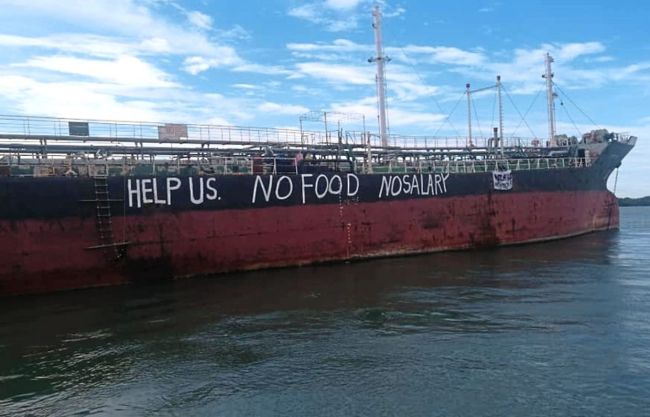
[ad_1]

Ship abandonment is one of the common challenges international seafarers are confronted with, said Andrew Mwangura, a Kenya-based Maritime Consultant. He added that between 2020 and 2021, at least 75 cases of vessel abandonment had been recorded.
He added that the International Labour Organization (ILO) with the International Maritime Organization (IMO) began maintaining records of abandoned ships. They have done this for nearly two decades. Every year, about 20-25 ships are abandoned at various ports.
Globally, about 5,000 seafarers on 336 ships had been recorded as abandoned by the IMO and the ILO beginning in 2004. The challenge has long been fueled by the Flag of Convenience (FOC), a practice whereby a vessel from, say, the UAE is registered in another country, like the US, and sails with a Kenyan flag.

Representation Image
A case in point is MV Jinan, a Russian-owned vessel. The crew on board was from Syria but flying a flag from Zanzibar. It had been abandoned at Mombasa. The cargo ship had started sailing from Russia, transporting the steel. It had docked in Mombasa.
Steven Owaki, the Secretary-General of Seafarers Union of Kenya, said that the ship never got a chance to sail from Kenyan seas as it did not get cargo from Mombasa Port in August 2019.
In the case of MV Jinan, it had a lot of problems; the crew had been unpaid for some time. The ship’s agents could not be paid for their services. The cumulative port charges had accrued to a significant sum. The shipowner could not pay. On the other hand, the crew had tried reaching the shipowner but failed.
MV Jinan had 18 crew members from Syria. Per the norm, a foreign crew is not permitted to step off the ship due to visa regulations unless there is a medical emergency involved. The crew was not only encountering challenges owing to lack of food and medical supplies but also they had not been given wages.
Kenya Maritime also decided to analyze the state of affairs on the ship. Owaki said that the Kenya Maritime Authority had gone to inspect the vessel and found that it had several defects which had to be rectified before it could set sail.
The case had been reported to the International Transport Workers Federation (ITF), London, and also to the ITF Inspector-in-charge in Mombasa.
Per the UN Conference on Trade and Development-UNCTAD in 1986, a state is responsible for taking measures to ensure that merchants or shipowners in the registry are identifiable to ensure their accountability. But it seems that the international regulations were not complied with.
In 2020, several attempts had been made to reach the shipowner. But he was not reachable. The ship agents withdrew their services as they were not paid. This compelled Zanzibar on whose flag the ship had been sailing to take away its flag and the ship became a flagless ship.
This opened a new chapter for the ship as the crew decided to move court.
Owaki said that in August last year, the crew took the matter to court and filed a petition in Mombasa. The court tried to get in touch with the agents and the shipowner, who did not show up. The court then gave orders to sell the ship through auction, so that the proceeds from it could be paid to the crew.
The bidding process kick-started after an advertisement was placed in February 2021. In May, the highest bidder turned up with about $580,000 for MV Jinan. By this time, the nine crew members had left the country but had been part of the court matter.
Their money was wired to them. Mwabgura says that ships are more often auctioned whenever a merchant is bankrupt and fails to pay for the services he rendered.
He also says that some ship merchants are rogue and may be involved in tax evasion. On the other hand, some may be involved in drug trafficking and other such affairs, compelling them to abandon their ships.
Per statistics, Liberia and Panama have the biggest number of foreign ships that are operating under open registries.
The real sufferers in the open registries are the seafarers. For instance, those onboard MV Jinan for more than 17 months and were dependent on charity and well-wishers to feed them and provide healthcare facilities while the owners were missing in action.
Mwangura said that some shipowners disappear when the tides begin to turn against them and reappear when the auction process resumes. They may buy the ship at incredibly low prices. As a result, seafarers lose a substantial sum of money for their accrued dues.
Reference: africa.cgtn.com
[ad_2]
This article has been posted as is from Source